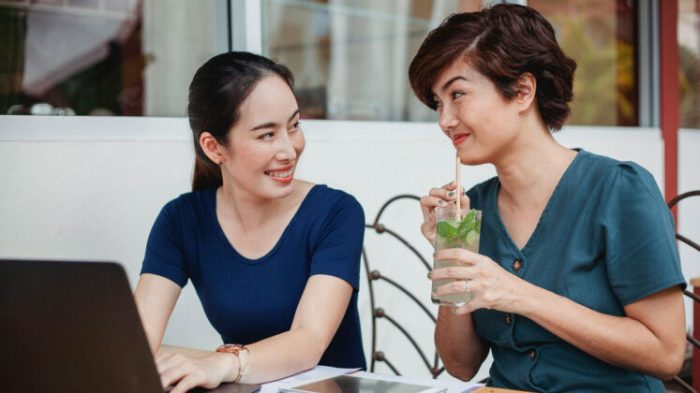
Travel insurance for digital nomads is more than just a safety net; it’s a crucial part of the nomadic lifestyle. As remote workers venture across the globe, their unique circumstances call for specialized insurance solutions that cater to their dynamic needs.
Understanding the components that make travel insurance suitable for nomadic lifestyles, including coverage for health, equipment, and unexpected cancellations, can empower digital nomads to travel more confidently and securely. This guide dives into the vital aspects of travel insurance, comparing it to traditional policies and highlighting what sets it apart.
Understanding Travel Insurance for Digital Nomads

Digital nomads, who work remotely while traveling the world, face unique challenges when it comes to travel insurance. Unlike traditional travelers, they require coverage that addresses their continuous lifestyle of movement and work, which brings about distinct needs and considerations in their insurance policies.Travel insurance for digital nomads must encompass a variety of components that cater specifically to their way of life.
This includes not only coverage for medical emergencies but also insurance for lost or stolen equipment, trip cancellations, and coverage for activities that might be part of their lifestyle. As they often stay in different countries for varying lengths of time, having flexible policies that can adapt to changing locations is crucial.
Components of Travel Insurance for Digital Nomads
A comprehensive travel insurance policy for digital nomads should include several key components that reflect their unique circumstances. These components are vital for ensuring that a digital nomad can travel with peace of mind while pursuing their work and adventures.
- Medical Coverage: Essential for any traveler, this provides protection against unexpected health issues or accidents. Digital nomads should look for policies that cover global emergencies and include repatriation services.
- Equipment Protection: Nomads depend on their devices for work. Insurance should cover loss, theft, or damage to laptops, cameras, and other essential gear.
- Trip Interruption and Cancellation: Flexibility is key for nomads, who may need to change their plans at a moment’s notice. This coverage helps recover costs if a trip must be cut short or canceled.
- Liability Coverage: This protects against claims made by others for injury or damage caused by the policyholder during their travels.
- Adventure Sports Coverage: Many digital nomads engage in outdoor sports or activities. Specialized coverage may be necessary for activities like skiing, scuba diving, or skydiving.
The difference between standard travel insurance and specialized policies for digital nomads is significant. Standard policies might not consider the unique and varied lifestyles of remote workers. For example, traditional travel insurance generally covers specific trips with set dates, while digital nomad insurance may offer extended coverage periods and adaptability to multiple locations without the need for frequent renewals.
“Choosing the right travel insurance is not just about protection; it’s about ensuring the freedom to explore the world while working remotely.”
Specialized policies often include features such as unlimited medical coverage, 24/7 emergency assistance, and the ability to cover multiple destinations in a single policy. This flexibility is particularly important, as many digital nomads change locations frequently, sometimes even on a monthly basis. Furthermore, these policies typically offer online management tools that allow nomads to adjust their coverage as their travel plans evolve, ensuring they are protected no matter where their journey takes them.
Evaluating Different Types of Insurance for Travelers

Travel insurance is crucial for digital nomads and travelers, helping to mitigate risks associated with unexpected events during their journeys. However, understanding the various types of insurance available can be challenging. In this section, we will evaluate travel insurance alongside other forms of insurance, highlighting key distinctions and importance for travelers with unique needs.
Comparison of Travel Insurance and Pet Insurance
Travel insurance and pet insurance serve different purposes and cater to distinct needs. While travel insurance covers unexpected events that can impact your trip, pet insurance focuses on the health and wellbeing of your furry companions. Below are the key distinctions between the two:
- Coverage Focus: Travel insurance typically covers trip cancellations, medical emergencies, lost luggage, and travel delays, while pet insurance primarily covers veterinary expenses for illnesses and accidents related to your pet.
- Beneficiary: In travel insurance, the traveler is the primary beneficiary, receiving financial protection and assistance. In contrast, pet insurance benefits the pet owner, providing reimbursement for medical treatments for their pets.
- Duration: Travel insurance policies are often short-term, covering specific trips, whereas pet insurance usually involves annual policies that provide ongoing protection for the pet’s health.
- Claim Process: Filing a claim for travel insurance often involves documentation of travel-related expenses, while pet insurance claims require vet invoices and proof of medical treatments.
Importance of Supplemental Insurance for Travelers with Specific Health Needs
Travelers with specific health needs, such as chronic illnesses, should consider supplemental insurance to enhance their travel insurance policy. This additional coverage can provide crucial protection in unforeseen medical situations. The following points illustrate the importance of supplemental insurance:
- Enhanced Medical Coverage: Supplemental insurance can fill gaps in primary travel insurance, ensuring that travelers receive necessary medical care specific to their health conditions.
- Access to Specialized Care: This type of insurance often provides access to a wider network of healthcare providers, ensuring travelers can obtain the specialized care they require while abroad.
- Emergency Evacuation: Supplemental plans may include provisions for emergency evacuations, which can be vital for those with serious health conditions needing urgent medical attention.
- Peace of Mind: Having additional coverage alleviates concerns about potential high medical costs and ensures that travelers can focus on enjoyment rather than worry.
Relevance of Umbrella Insurance for Travelers with Assets
Umbrella insurance serves as an extra layer of liability protection and is particularly relevant for travelers who own significant assets. This type of insurance can provide peace of mind when traveling, knowing that assets are protected from unforeseen liabilities. Here are some crucial aspects regarding umbrella insurance:
- Liability Coverage: Umbrella insurance extends beyond standard liability coverage, covering claims that may exceed the limits of other insurance policies, such as home or auto insurance.
- Asset Protection: For those traveling with substantial assets, umbrella insurance safeguards against lawsuits and claims that could jeopardize their financial stability.
- Global Coverage: This type of insurance usually offers worldwide coverage, meaning that travelers remain protected against incidents that occur outside their home country.
- Cost-Effective: Umbrella insurance is often relatively inexpensive compared to the amount of coverage it provides, making it a smart choice for asset protection while traveling.
Exploring Niche Insurance Options
When traveling, traditional travel insurance may not cover every unique situation a digital nomad might encounter. Exploring niche insurance options can provide targeted coverage that caters specifically to a traveler’s needs, enhancing safety and peace of mind during their adventures.Understanding the specific benefits of niche insurance options can help travelers make informed decisions. Vision insurance, for example, is an excellent choice for travelers who may rely heavily on their eyesight for work or leisure.
This insurance can cover a variety of eye care needs. Below are some of the key benefits associated with vision insurance for travelers.
Benefits of Vision Insurance for Travelers
Vision insurance can enhance a traveler’s experience significantly. Consider the following advantages it offers:
- Comprehensive Eye Exams: Regular eye exams can help detect issues early, ensuring travelers maintain excellent vision during their journeys.
- Cost Savings on Eyewear: Coverage can reduce expenses for prescription glasses and contact lenses, which is particularly helpful for frequent travelers.
- Access to a Network of Professionals: Travelers can access a wide network of optometrists and ophthalmologists, ensuring quality care regardless of location.
- Emergency Eye Care Coverage: In case of unexpected eye injuries while traveling, insurance can provide coverage for necessary treatments.
- Discounts on Vision Correction Surgery: Some plans offer discounts on laser eye surgery, which can eliminate the need for glasses or contact lenses.
In addition to specialized insurance such as vision coverage, travelers engaged in aquatic activities should consider watercraft insurance. This coverage is crucial for those renting or using personal watercraft while traveling. Below is a comparison table of different watercraft insurance options available to travelers.
Watercraft Insurance Options for Travelers
Travelers participating in water-based activities can benefit significantly from having the right insurance. The following table Artikels various watercraft insurance options, their coverage features, and price ranges.
| Insurance Provider | Coverage Type | Annual Premium |
|---|---|---|
| Travelers Marine | Liability + Physical Damage | $300 |
| Geico | Comprehensive + Collision | $450 |
| Progressive | Liability Only | $200 |
| State Farm | Package (Liability + Personal Effects) | $375 |
Integrating travel insurance with other types of insurance can provide a robust safety net for digital nomads. For instance, pet insurance can be essential for travelers who bring their pets along on their journeys. This integration ensures that both the traveler and their pet are covered in case of emergencies, accidents, or health issues.
Integration of Travel Insurance with Other Insurance Types
Comprehensive coverage is vital for a smooth travel experience. By integrating travel insurance with pet insurance, travelers gain several key benefits:
- Emergency Care for Pets: If a pet falls ill or gets injured while traveling, having pet insurance ensures they receive timely medical attention without incurring exorbitant costs.
- Coverage for Travel Cancellations: In case of unforeseen events affecting the pet’s health, travelers may be covered for cancellation costs associated with their trip.
- Peace of Mind: Knowing that both personal health and pet health are insured allows travelers to focus on their adventures without constant worry.
- Streamlined Claims Process: Combining policies often leads to a more straightforward claims process, making it easier to manage multiple coverages.
Ultimate Conclusion
In summary, navigating the world of travel insurance for digital nomads can seem daunting, but it’s essential for ensuring peace of mind on your adventures. With the right coverage, digital nomads can focus on their work and experiences rather than stressing over unforeseen events, making the journey all the more enjoyable and fulfilling.
FAQ Insights
Is travel insurance necessary for digital nomads?
Yes, it provides essential coverage for medical emergencies, trip cancellations, and lost belongings, which are critical for those frequently on the move.
Can I get insurance for pre-existing medical conditions?
Some insurers offer plans that cover pre-existing conditions, but it’s essential to check specific policy details.
How do I choose the right travel insurance policy?
Consider factors such as your destination, activities, and health needs, and compare policies to find the best coverage for your lifestyle.
What if I need to work while traveling?
Look for policies that cover equipment theft or damage, as well as liability coverage for any work-related incidents.
Are there specific policies for long-term travel?
Yes, many insurers offer long-term travel insurance or annual plans that can be more cost-effective for digital nomads.





